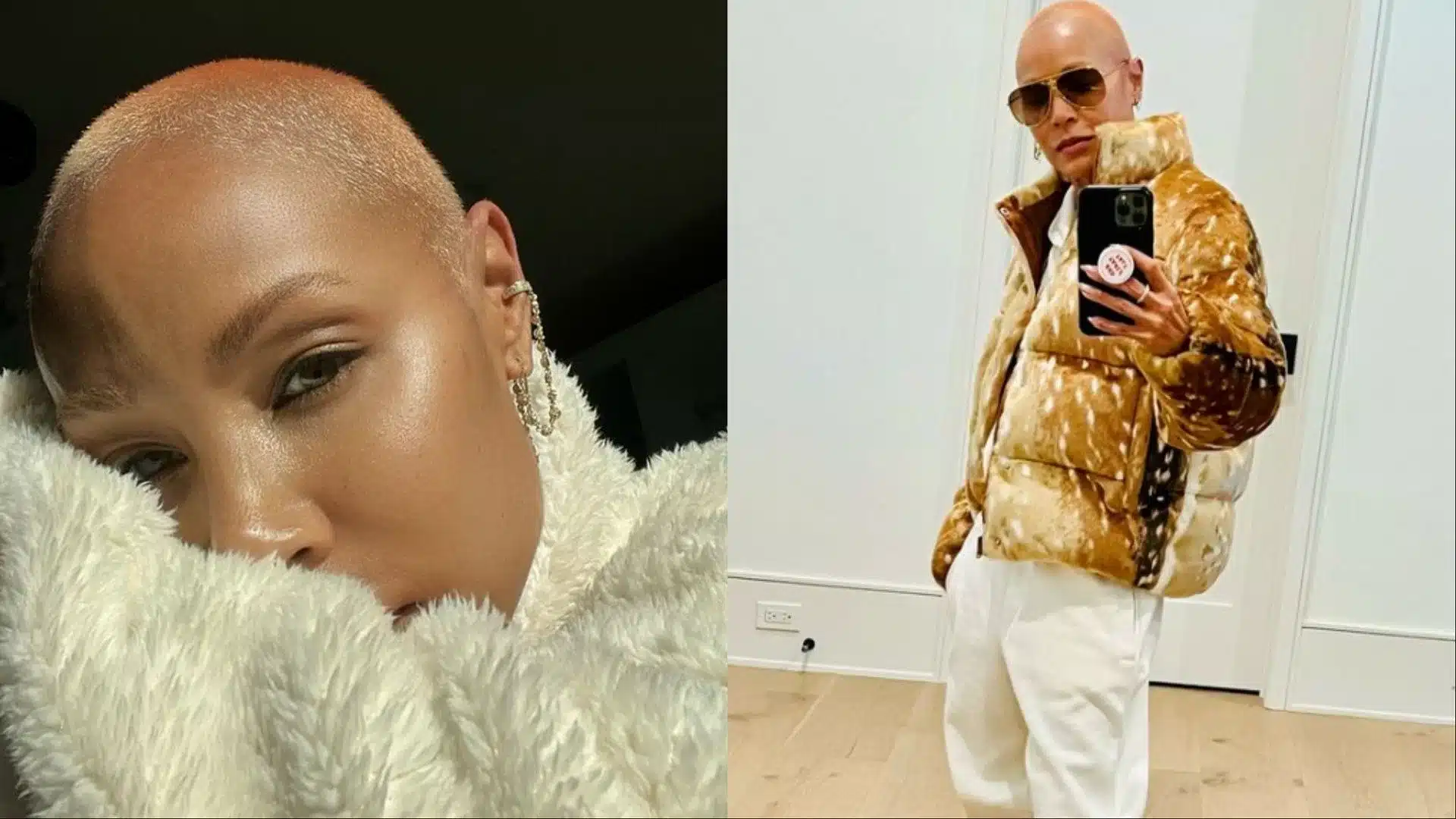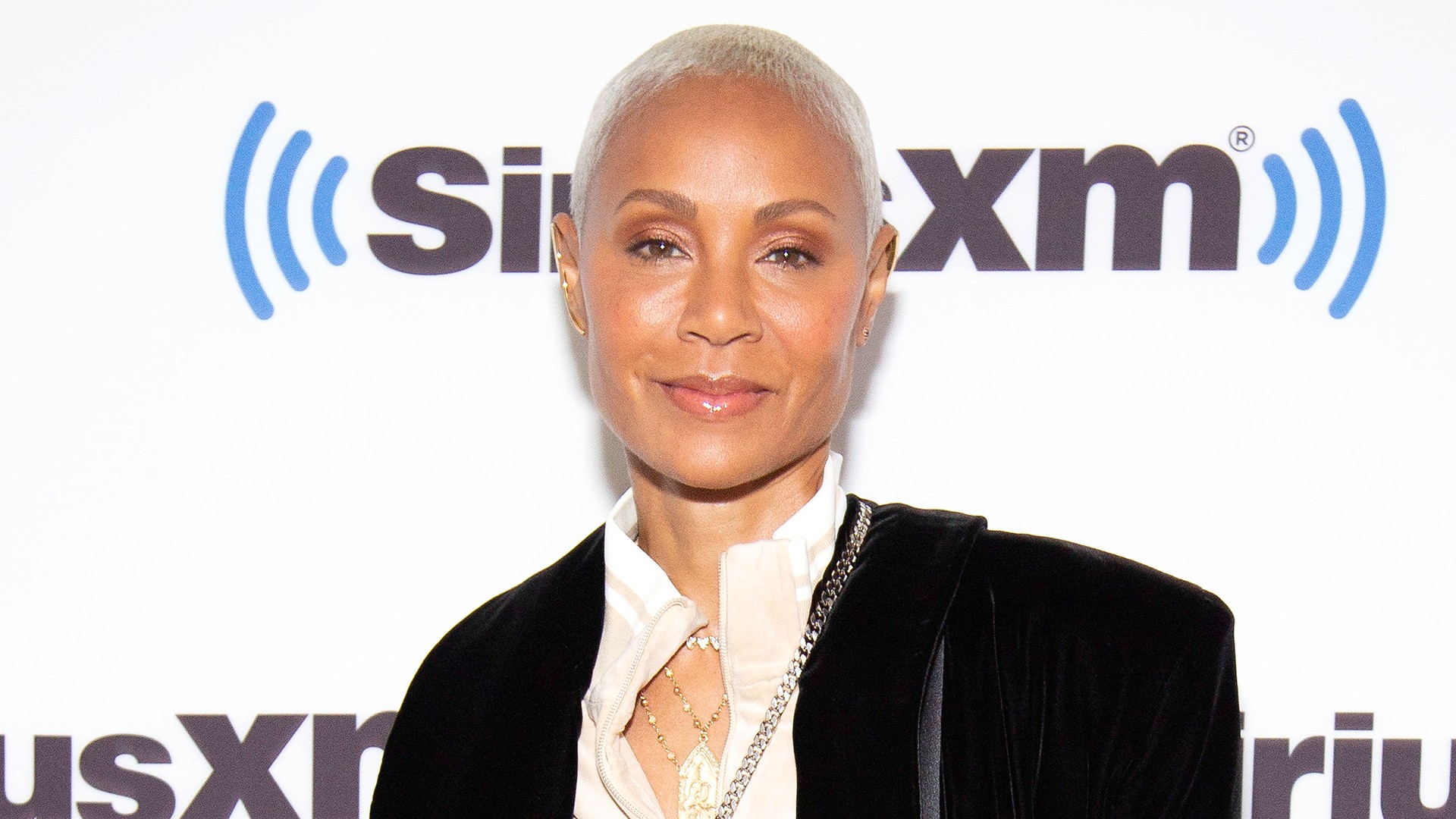When public figures share personal health battles, it often brings a wave of understanding and connection. It’s a moment, you know, when we all remember that even those we see on screens or in magazines face their own challenges. Lately, a lot of folks have been talking about Jada Pinkett Smith and her journey with a particular health situation, and it really has sparked so much conversation about what it means to live with a condition that changes how you look.
Her openness about what she's been going through has, in a way, helped many others feel less alone. It’s a powerful thing, to be sure, when someone with a big platform steps forward and talks about something so personal. This kind of sharing, actually, helps to chip away at stigmas and makes it easier for everyone to talk about health in a more honest way.
So, we wanted to spend a little time looking at what has been shared about Jada Pinkett Smith's health, particularly the condition she has spoken about, and why her decision to be so candid has resonated with so many people. It’s a story, you see, that goes beyond just one person; it touches on themes of acceptance, self-image, and the strength it takes to show up as you are.
Table of Contents
- Jada Pinkett Smith - A Brief Life Story
- Personal Details and Bio Data
- What Has Been Said About Jada Pinkett's Health?
- How Has Jada Pinkett Smith Dealt With Her Sickness?
- What Is Alopecia Areata - The Condition Jada Pinkett Smith Deals With?
- Are There Different Kinds of Alopecia Affecting People Like Jada Pinkett Sick?
- The Impact of Jada Pinkett's Health Revelation on Public Discourse
- Support Systems for Those Who Are Jada Pinkett Sick
Jada Pinkett Smith - A Brief Life Story
Jada Pinkett Smith, a person many of us have come to know through various roles, has built a life that spans acting, singing, and even hosting. She began her path in entertainment at a rather young age, showing a clear talent for performing. Her work on television shows helped her gain recognition, and from there, she moved onto the big screen, taking on a wide array of parts that really showed her versatility. She has, you know, played characters that are strong and determined, and others that are quite vulnerable, giving audiences a chance to see many sides of human experience.
Beyond her acting, Jada has also ventured into music, being part of a metal band, which for some, was a surprising turn. This move, in a way, just goes to show her willingness to explore different creative avenues and not be limited by what people might expect. She's also a mother, a wife, and someone who has used her platform to talk about important social matters, too. It's almost as if she sees her public presence as a chance to connect with others on a deeper level, sharing thoughts and experiences that go beyond the typical celebrity chatter.
Her career has seen her work alongside many respected individuals in the industry, and she has, over the years, become a voice that people listen to. She has often spoken about personal growth, family dynamics, and the challenges that come with living a life in the public eye. So, when she decided to share details about her health, it was, in some respects, just another example of her characteristic openness, inviting people into a part of her life that many would prefer to keep private.
- Christopher Barnett
- Witty Online Dating Headlines
- Little Red Wagon Miranda Lambert
- Pottery Barn Wall Unit
- Kelsey Glover Florida
Personal Details and Bio Data
For those interested in the foundational facts about Jada Pinkett Smith, here’s a quick look at some general details about her life and background. This information helps to paint a broader picture of the person behind the public persona, giving a little more context to her journey.
| Detail | Information |
|---|---|
| Full Name | Jada Pinkett Smith |
| Date of Birth | September 18, 1971 |
| Place of Birth | Baltimore, Maryland, U.S. |
| Occupation | Actress, Talk Show Host, Singer, Businesswoman |
| Spouse | Will Smith |
| Children | Jaden Smith, Willow Smith |
You know, seeing these details, it helps to ground the discussion about her health. It reminds us that she is, at the end of the day, a person with a family and a career, just like anyone else, navigating life's ups and downs. This table, basically, provides a quick reference for those who might be curious about her background as we talk more about her health journey.
What Has Been Said About Jada Pinkett's Health?
For a while now, Jada Pinkett Smith has been quite open about a health condition she lives with, which is a form of hair loss. This isn't something she has kept hidden; rather, she has chosen to speak about it publicly, sharing her experiences and what it means for her daily life. It started, apparently, with her noticing clumps of hair coming out in the shower, which, as you can imagine, would be a very startling thing for anyone to experience. She has described the initial fear and uncertainty that came with this discovery, a feeling that many people who face unexpected health changes can certainly relate to.
She has discussed how she had to figure out what was happening to her body, and how she eventually received a diagnosis of alopecia areata. This particular condition, you know, causes hair to fall out in patches, and in some cases, it can lead to complete hair loss. Jada has, in a way, used her talk show platform to bring this conversation to a wider audience, showing her own experiences with the condition, including shaving her head. This decision to embrace her changing appearance, actually, has been a powerful statement for many who are dealing with similar issues.
Her honesty about living with what some might call "Jada Pinkett sick" has really shifted how many people view hair loss. It's no longer just a private struggle for her; it has become a topic of public discussion, encouraging others to share their own stories and seek support. She has talked about the emotional toll it can take, but also about finding strength and acceptance in the face of such a personal change. It’s a very human story, really, of adapting and finding peace with what life brings.
How Has Jada Pinkett Smith Dealt With Her Sickness?
When faced with a health challenge like hair loss, the way someone chooses to respond can vary a lot. For Jada Pinkett Smith, her approach to dealing with her condition, which some might refer to as her "Jada Pinkett sick" journey, has been marked by a great deal of openness and a clear move towards acceptance. She didn't try to hide what was happening; instead, she brought it into the light, which, you know, is a brave thing to do when you live in the public eye. She started by sharing videos and pictures of her hair loss, explaining to her followers what she was experiencing.
One of the most visible ways she has dealt with her hair loss is by choosing to shave her head completely. This decision, in a way, transformed her look and sent a strong message of self-acceptance. It was a way of taking control, of saying, "This is who I am now, and I embrace it." This act, basically, resonated with many people who felt empowered by her choice to redefine beauty standards on her own terms. It showed a kind of strength that goes beyond physical appearance, focusing instead on inner peace and confidence.
Furthermore, Jada has used her platform, particularly her talk show, to discuss the emotional and psychological aspects of living with alopecia. She has invited experts and other individuals with the condition to share their stories, creating a space for dialogue and support. This has, in some respects, turned a personal struggle into a collective conversation, helping to normalize discussions around hair loss and body image. She has, you know, talked about the difficult moments, but also about the liberation that came with letting go of societal expectations about hair. It’s a powerful testament to finding strength in vulnerability.
What Is Alopecia Areata - The Condition Jada Pinkett Smith Deals With?
To really understand what Jada Pinkett Smith has been experiencing, it helps to know a bit more about alopecia areata itself. This condition, you see, is an autoimmune disorder. What that means, in simpler terms, is that the body's own immune system, which is supposed to protect us from things like germs and sickness, mistakenly attacks the hair follicles. These follicles are the tiny structures under the skin where hair grows. When they are attacked, the hair production process gets interrupted, and hair starts to fall out.
Typically, with alopecia areata, the hair loss happens in patches, which can be round or oval shapes on the scalp. However, it's not just limited to the head; it can affect hair anywhere on the body, including eyebrows, eyelashes, and even body hair. The hair loss can be sudden, which, as you can imagine, can be quite distressing for someone experiencing it. It's not usually painful or itchy, but the visual change can be a significant emotional challenge for those who find themselves with a "Jada Pinkett sick" type of hair loss.
The exact cause of why someone develops alopecia areata isn't fully known, but it's thought to involve a mix of genetic factors and environmental triggers. It's not contagious, so you can't catch it from someone else. While there's no cure for alopecia areata right now, there are various treatments that some people try to help with hair regrowth, though results can vary. For many, like Jada, finding ways to cope with the condition and accept the changes becomes a really important part of their journey. It’s a condition that affects people of all ages, genders, and backgrounds, making Jada's openness all the more impactful.
Are There Different Kinds of Alopecia Affecting People Like Jada Pinkett Sick?
When we talk about hair loss, it's actually a broad term, and alopecia areata, the condition Jada Pinkett Smith has spoken about, is just one type among several. It's important to understand that not all hair loss is the same, and different kinds have different causes and patterns. So, if someone is dealing with hair loss, it doesn't automatically mean they have the same "Jada Pinkett sick" condition. There are, you know, quite a few variations.
For example, there's alopecia totalis, which is a more extensive form of alopecia areata where a person loses all the hair on their scalp. Then there's alopecia universalis, which is even more widespread, leading to the loss of all hair on the entire body, including eyebrows, eyelashes, and body hair. These are, basically, more severe forms of the autoimmune condition. Another common type of hair loss is androgenetic alopecia, which is more commonly known as male or female pattern baldness. This is a very common type of hair loss, and it's usually hereditary, meaning it runs in families. It tends to be a gradual thinning process, rather than sudden patches.
Other types of hair loss can be temporary, too, like telogen effluvium, which happens when a lot of hair follicles go into a resting phase too early. This can be triggered by things like severe stress, surgery, or even certain medications. There's also traction alopecia, which is caused by constant pulling on the hair, often from tight hairstyles like braids or ponytails. So, you see, while Jada's experience sheds light on one specific type, the world of hair loss is quite varied, and each type has its own unique characteristics and challenges for those who experience it. It’s a complex area, really, with many different paths people might walk.
The Impact of Jada Pinkett's Health Revelation on Public Discourse
Jada Pinkett Smith's decision to openly discuss her experience with alopecia has had a pretty big ripple effect on how people talk about hair loss, body image, and even self-acceptance. Before she spoke out, for many, hair loss, especially in women, was often a very private and sometimes even shameful matter. Her honesty, however, really helped to pull it out of the shadows and into mainstream conversation. It’s almost as if she gave permission for others to be vulnerable about their own struggles, which is a powerful thing to do.
Her public journey with what some refer to as "Jada Pinkett sick" has, in a way, sparked a much-needed dialogue about beauty standards. In a world where long, flowing hair is often seen as a symbol of femininity and attractiveness, Jada's embrace of her shaved head challenged those traditional ideas. This has encouraged many, especially women, to reconsider what beauty truly means and to find confidence in their own unique appearances, even if they don't fit conventional molds. It’s a shift, you know, towards a more inclusive and accepting view of what makes someone beautiful.
Moreover, her candidness has led to increased awareness about alopecia areata itself. Many people might not have known about the condition before, or understood its impact. By sharing her story, Jada has put a spotlight on the experiences of millions of people worldwide who live with hair loss, fostering a greater sense of empathy and understanding. It has, basically, opened up conversations in families, among friends, and even in online communities, providing a platform for support and shared experiences. This kind of public sharing is, in some respects, incredibly valuable for creating a more compassionate society.
Support Systems for Those Who Are Jada Pinkett Sick
For anyone experiencing hair loss, whether it's similar to Jada Pinkett Smith's situation or a different kind, having a good support system can make a world of difference. It’s a very personal journey, you know, and the emotional impact of losing one's hair can be significant. Knowing where to turn for help, or finding others who understand what you're going through, is incredibly important for mental well-being and coping.
One of the primary ways people find support is through online communities and forums. These spaces allow individuals to connect with others who are also dealing with hair loss, share their stories, ask questions, and offer advice. It’s a place where you can feel less alone, and where you can find practical tips on things like managing hair loss, exploring head coverings, or even just talking about the emotional ups and downs. These communities, basically, provide a sense of belonging and shared experience, which can be very comforting.
Beyond online groups, there are also dedicated organizations and foundations that offer resources, information, and local support groups for people with alopecia and other hair loss conditions. These groups can provide a more direct, in-person connection, allowing people to meet face-to-face and build a network of support. Some individuals also find comfort and guidance from mental health professionals, like therapists or counselors, who can help them process the emotional impact of hair loss and develop coping strategies. So, you see, there are many avenues for support, helping those who are, in a way, experiencing what it feels like to be "Jada Pinkett sick" to find strength and community.
In short, we've talked about Jada Pinkett Smith's public journey with alopecia areata, a condition that causes hair loss. We looked at her background, how she has openly shared her experiences, and what alopecia areata actually is. We also touched on the different kinds of hair loss and the broader impact Jada's honesty has had on public conversations about beauty and acceptance. Finally, we explored the various ways people dealing with hair loss can find support and community.
- Shows Similar To Abbott Elementary
- Gronkowski Commercials
- May Baby Zodiac Sign
- Jennifer Nettles Images
- Dehydrated Patrick


